The world has changed. Our needs have changed. Our vision of the future has changed. Schools haven’t been keeping up.
If our children are our future, then the way we run our schools reflects our dreams for the future. There was an era when American parents dreamed of their children going to college, earning a good degree and supporting a family with all the good things America could provide.
For that, all that was needed was a school that gave your kids that entry pass to college. Principally, your children needed information and the skills to access that information.
Today our dreams are different. We
Most of all, we need respite from the noise.
When the Internet opened its floodgates in 1991, pundits described how the information signal-to-noise ratio had just plummeted. Today, without vigilante self-discipline, there is only noise and more noise. Noise cubed, surrounding each of us in all dimensions of our lives.
Our children, especially, live within this noise from morning to night. It is their world, frighteningly more than the world of their senses in which they walk. Their primary reality has become a place of utter chaos, where seven billion voices scream out for their attention—and mostly not for anything that will do them any good.
The most sensible, most caring, most compassionate thing we can give our children today is respite from that noise. And
We need to demonstrate to our children that it is possible for you to stop, be still and allow that gray matter in your skull to reflect on those things most important to you. Not those things the world screams at you about. Not the voices that tell you who you must be, what you must enjoy, what you have to buy to be cool—but to a small, still voice inside that asks, “Who am I? What am I doing here? What is this all about?”
We need to introduce a daily habit of quietness into American life. And the key place to begin is in our schools.
Does it work?
Take the testimony of the administration of P.S. 191-The Paul Robeson Elementary School in Brooklyn, N.Y., describing the results of their “Moment of Silence” in school in a 2013 report:
When we introduced it several years ago overall student attendance was down, parent participation was low, and student achievement was climbing but not at the rate that everyone was hoping for. Our students required, and still require, a greater need to be listened to. Our students required new ways of dealing with emotions and crisis. Our students needed the time and an outlet that would provide an opportunity to understand the ‘whys’ and ‘hows’ of their experiences. They needed to become more contemplative . . .
Since then it has become an ongoing, transformative experience. The Moment of Silence provided the students an opportunity to become more mindful and reflective of their experiences inside and outside the classroom. The students have become more introspective in their writing and have a greater appreciation, empathy, and understanding of their peers. . . . Students have also gained a greater understanding of educational objectives.
More contemplative, more introspective, more empathy. Isn’t this all we want for our children? For our future?
People ask: What will a child think about for the minute or two of silence? That’s just the point: Silence creates a question. Noise leaves no room for questions.
Now that there is a question, a child can go home and ask Mom and Dad, “What am I supposed to think about?” Effectively, we’re putting moral education back in the hands of those to whom it most belongs—the child’s parents.
If the parents believe in G‑d, they can tell their children to talk to G‑d, or to say a little prayer. If they don’t believe in G‑d, they can tell their children to think about all the things in the world that need fixing. Let the parents decide for themselves what values they wish to pass on to their children.
A daily moment of silence doesn’t demand a bill in Congress, or a presidential signature. Those things would be nice, and send a signal throughout the country.
The place to start, however, is with your own school. It needs
And it can begin with each one of us as well. In this crazy, noisy world, take a moment each morning to watch the sun rise, hear the birds sing, pay attention to the rustling of the wind through the leaves of the trees, and ask yourself, “Who am I? What am I doing here? What is this all about?”
Your day will be a different day. The kind of day you want most for your children.
A Collection Of Letters From Students
For more materials and resources, please visit Momentofsilence.info.

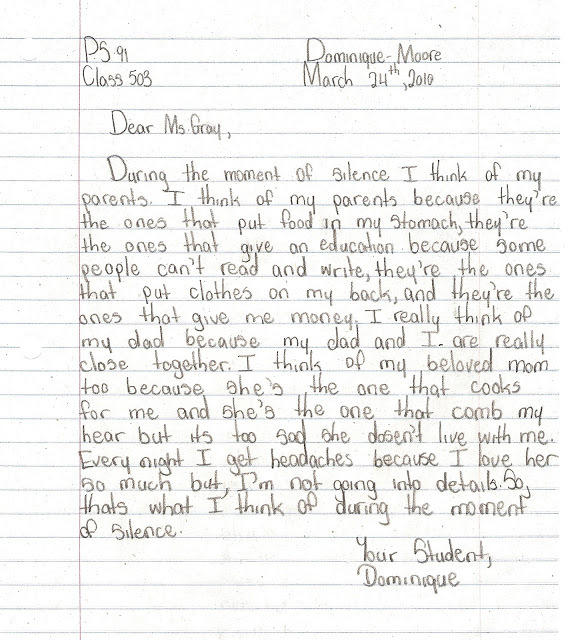
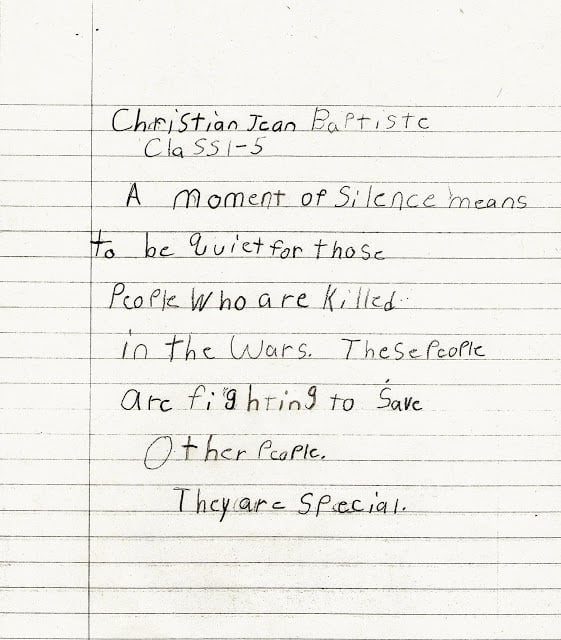


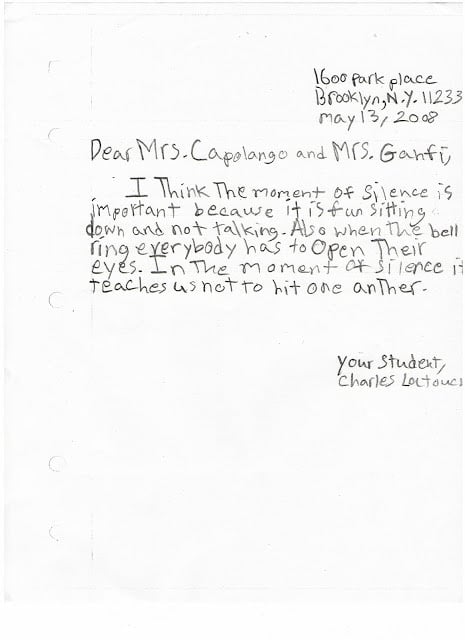
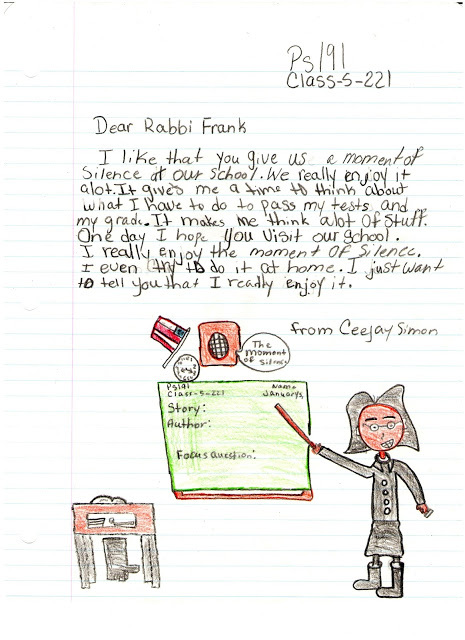
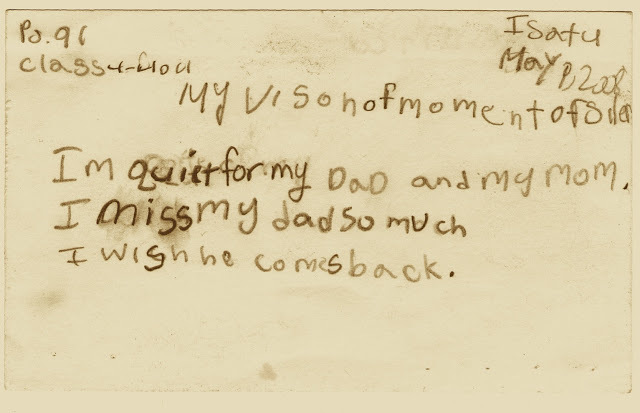

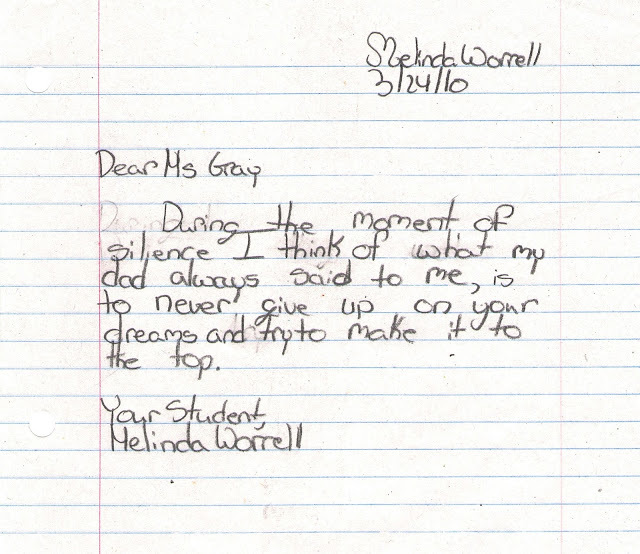

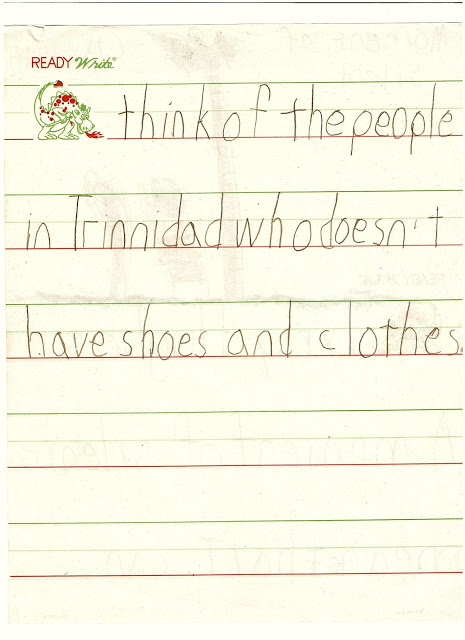
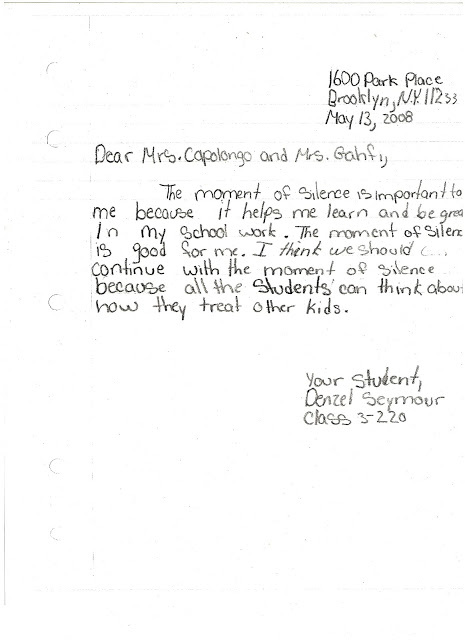
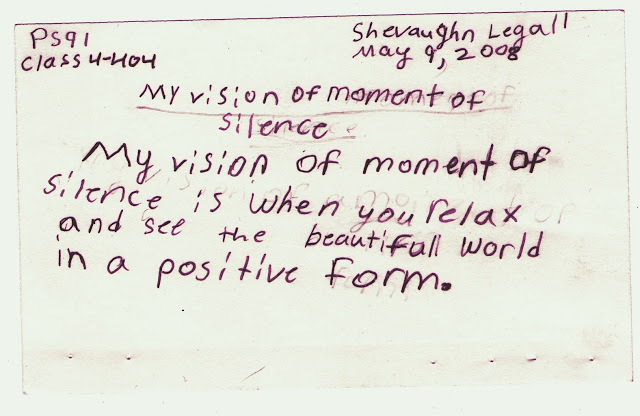









Join the Discussion